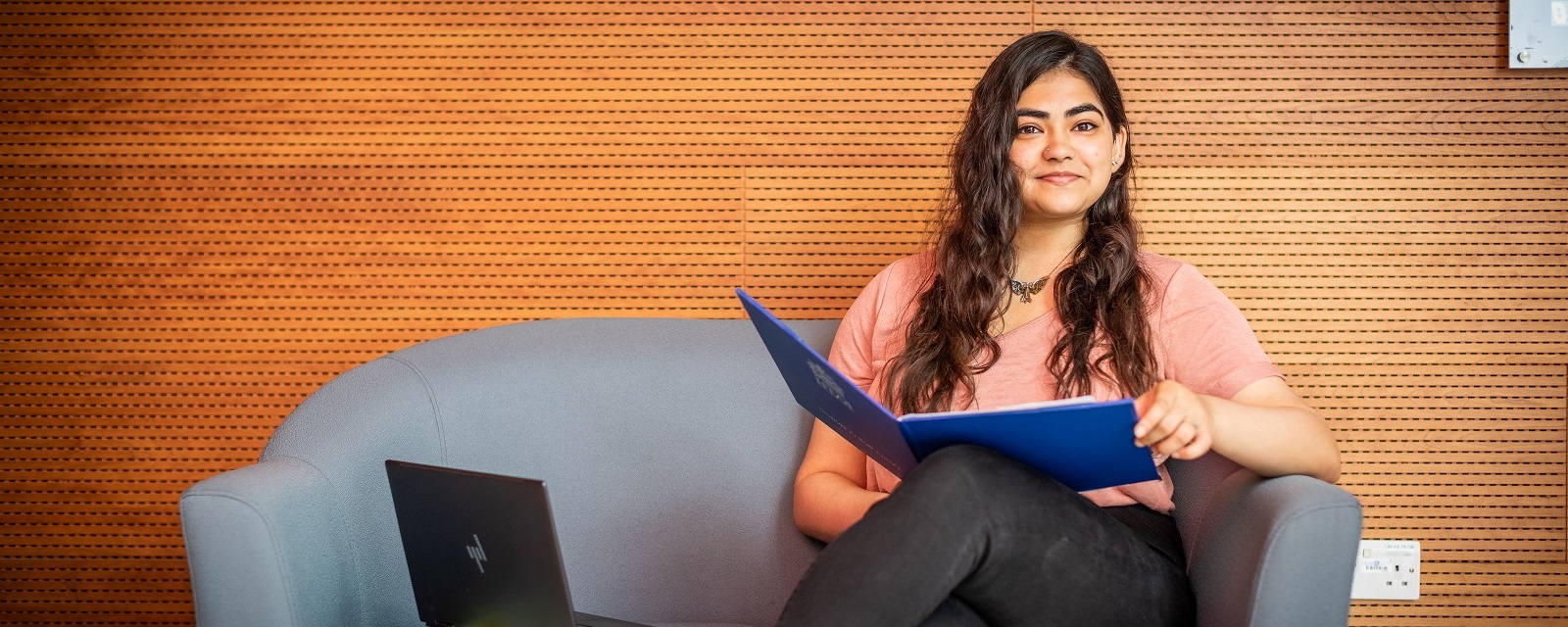- ...
Postgraduate Studentships - Search for funding opportunities.
Postgraduate Studentships - Search for funding opportunities.
Daniel talks about his experience studying an interdisciplinary master’s at Bath, and how it helped him start his career.
Daniel Seyffardt graduated from MSc Applied Psychology and Economic Behaviour in 2020, having completed a bachelor's degree in business and finance in his native Germany.
We spoke to him to find out how the course at Bath helped him pivot his career as a behavioural scientist and consultant.
Moving into psychology without a psychology background
Coming from a business background, the mix between psychology and economics in the Bath course was exactly what I was looking for. I’d always been interested in psychology, but I knew I didn't want to study it from scratch. I wanted to build upon my knowledge and experience in business and banking and combine it with applied psychology, which is the essence of the behavioural economics course in Bath.
By the time I chose to come to Bath, I had received a few offers from different universities. Aside from the rankings and technical expertise here, one of the main reasons I chose Bath was because of how much of a vibrant student city it was. I remember looking at reviews, student blogs and YouTube videos to get a feel for the place, because I also wanted to enjoy myself while I was doing my master’s degree. Bath had the best of both worlds.
I particularly enjoyed the more applied modules, where we took theoretical concepts and learned how they inform policy or strategy design, for example. Understanding how concepts and principles play out in real life really helped me figure out where I wanted to go afterwards.
Landing a job before I’d even handed in my dissertation

Towards the end of the course, I started looking for job opportunities – mostly out of curiosity as I’d initially planned to take a few months off and travel for a bit, but the first wave of the COVID pandemic put a spanner in the works.
When I looked at what kind of jobs were advertised in behavioural economics, I came across a role in Zurich, which was a perfect fit for my CV. I applied and a few weeks later I had moved from Bath to Zurich while I was still completing my master's thesis.
I’m now a Behavioural Scientist and Senior Consultant at Affective Advisory. This means I specialise in applying behavioural science insights to practical challenges in private organisations, public policy or non-profit organisations. As a team of specialists, we advise them on how to change people's behaviour - be that employees, customers, or citizens.
Behavioural science includes a wide range of methodologies and theories to understand, design and evaluate human behaviour and decision-making. While nudging, a concept popularized by behavioural economists, is indeed a powerful tool within the field, behavioural science extends far beyond this.
We are in a unique position to provide evidence-based advice across various domains, whether it involves crafting product designs tailored to specific target behaviours or developing and evaluating innovative policies. It’s quite a varied job, from desk to field research, from designing to facilitating workshops, or from project to stakeholder management. Essentially, my responsibilities range from high-level strategic advice for senior stakeholders to getting into the thick of experimental design. I mostly work from our office, from home, or from our clients' offices.
As a qualified behavioural science consultant, it is also important to point out that we carry a responsibility to ensure an ethically sound application in practice. We must not impose decisions on people, for instance by removing options, but rather focus on facilitating the decision-making process.
Bringing people from different backgrounds together
Looking back on the course, what was quite special was the variety of people that were on it. They came from all sorts of personal and academic backgrounds; some of them came straight out of their undergraduate degree – from psychology or economics, but also things like linguistics – and some people had worked in auditing, the energy sector or other industries. It was very broad and having all these people together was so enriching.
For me, it was also the first time I’d studied and lived abroad. I had done my undergraduate in a rather small German town, even smaller than Bath, and the experience was completely different. I felt that I had so many opportunities in Bath, and there are so many people that make sure you feel comfortable and that you're being taken care of if you have any questions. From wellbeing officers to campus security, there is support for everything, and I remember it as a very welcoming community.
Studying abroad was without a doubt the best decision I’ve ever made, both for my personal development and for my career.
My advice for future students: take your time, find out what interests you and enjoy yourself

No matter what career works best for you, use the time in Bath to find out what your strengths and interests are, if you’re more on the academic or the applied side of things. But also meet new people from all over the world, it’s such a valuable opportunity, and you might make some great friends too!
Looking forward, I still do see myself putting behavioural science into practice. Last year I picked up a lecturer job here in Switzerland, which I do enjoy as well. My consulting job lets me bring this beautiful thing called behavioural science into organisations and public policy.
Find out about the MSc Applied Psychology and Economic Behaviour

About University of Bath At Bath we are known for excellence in teaching and research; our welcoming community; and for providing students with outsta...
Sign up to Postgraduate Studentships
Sign up to compare masters
Thanks for making your selection. Click below to view your comparisons.